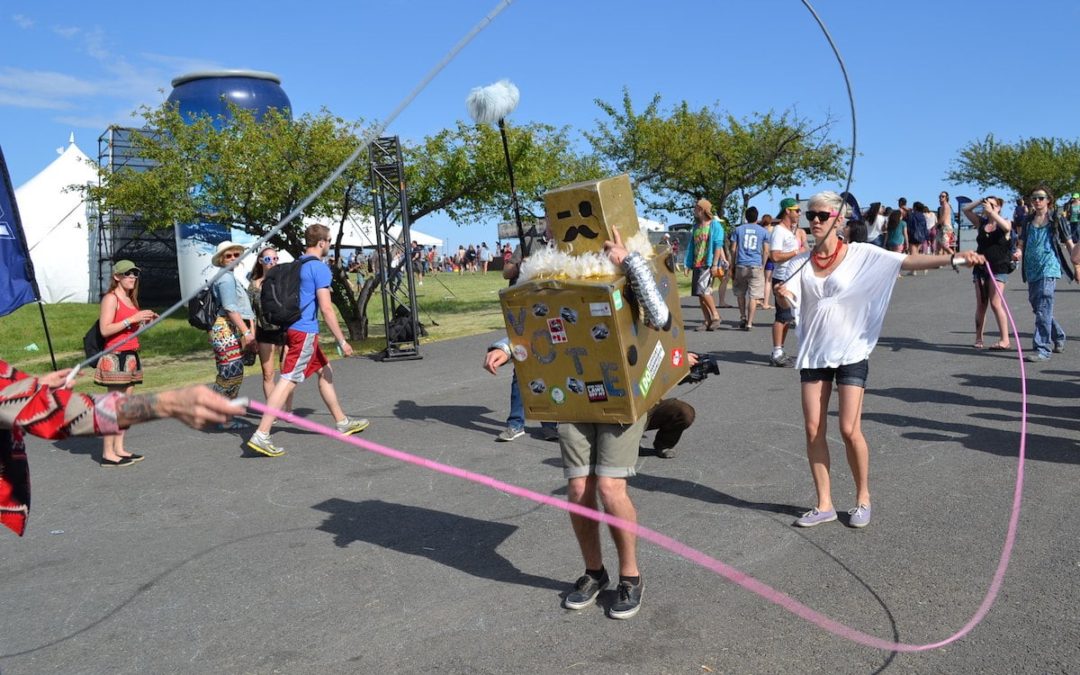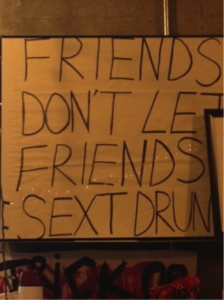
Plymouth Housing: A Landing Site for the Homeless
Last Saturday, we had the opportunity to visit Plymouth Housing Group, an organization that serves some of the most disadvantaged homeless adults in Seattle. During this visit, we learned about the organization’s unique approach towards tackling homelessness.
Plymouth operates under a “housing first” philosophy, which focuses first on bringing people off the streets and into stable and permanent homes. This means that individuals who often have no other options for housing – drug addicts, the chronically ill, and the disabled – can find a home at Plymouth. By lowering the barriers to housing, and accepting those who are struggling the most, Plymouth acknowledges the challenges that come with homelessness and aims to tackle the issue at its core.
What struck me the most was the extent to which Plymouth went to try to make their tenants feel at home. As part of our visit, we helped make welcome posters and calendars for new residents, to provide a more welcoming and comfortable touch to their new homes. The idea is that by prolonging their stay, tenants will have greater opportunities to seek the supportive services that they need and build towards a better and more stable life.

Image taken from www.plymouthhousing.org
So far, the hard work seems to have paid off. According to Winona Caruthers, the Community Engagement & Housing Stability Coordinator, nearly 98% of tenants remain with Plymouth after one year. Today, Plymouth is serving more than 1000 formerly-homeless people in its facilities.
However, there is still much work to be done. The problem of homelessness remains rampant in Seattle, with nearly 4000 people still living on the streets – a 20% increase from 2014. At Plymouth, waitlists extend through several years, and have even closed. This poses many questions: Are we taking the right approach? Are we tackling homelessness at its source? What is the source? The city and non-profits certainly have a complex problem to address. Whatever the answer may be, volunteering at Plymouth has shown me the value of incorporating kindness and humanity into this solution.
This blog post was written by Allen, a rising senior at Duke University and the Bus’ 2015 DukeEngage Intern.




 The Bus had four fellows involved in TransPride this year, whose primary responsibility was to register voters and engage people in The Bus’ youth agenda (police accountability, youth employment, housing accessibility, specifically) in regards to issues within and around Seattle’s trans community. Namely, there has been a recent increase in trans related hate crimes and violence, the necessity for protection against discrimination in the workplace, and the need for safe and affordable housing. This past year, Seattle had the third-highest rate of LGBTQ-related hate crimes in the United States.
The Bus had four fellows involved in TransPride this year, whose primary responsibility was to register voters and engage people in The Bus’ youth agenda (police accountability, youth employment, housing accessibility, specifically) in regards to issues within and around Seattle’s trans community. Namely, there has been a recent increase in trans related hate crimes and violence, the necessity for protection against discrimination in the workplace, and the need for safe and affordable housing. This past year, Seattle had the third-highest rate of LGBTQ-related hate crimes in the United States.
